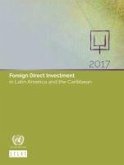It is often accepted, outside Japan, that the failure of foreign banks to penetrate the Japanese financial markets is the direct result of domestic protectionist policies. However, although there may be some truth in this it is a rather one-dimensional argument. Opening Japan's Financial Markets takes a broader look at the situation. It accepts that the Japanese bureaucracy have skillfully limited the scope of foreign banks and discusses at length the methods used to do so. However, in examining the history of foreign banking activity in Japan, it becomes clear that ineptitude on the part of the foreign banks and governments has also been a major factor. By suggesting that some of the fault lies with the foreign banking community, the book argues that solutions designed to 'punish' the Japanese, such as some forms of managed trade, are inappropriate. Rather, the author argues for a change of approach. This would include greater understanding and commitment to the market. Above all though, the US government, in trying to induce the Japanese to liberalize, must put its own house in order. Professor Brown has been researching this work for a number of years. The bulk of it is based on interviews with government and corporation officials in the USA, Japan and Europe. The book is particularly relevant in that it presents the counter argument to current thinking on this strained relationship.
Hinweis: Dieser Artikel kann nur an eine deutsche Lieferadresse ausgeliefert werden.
Hinweis: Dieser Artikel kann nur an eine deutsche Lieferadresse ausgeliefert werden.








